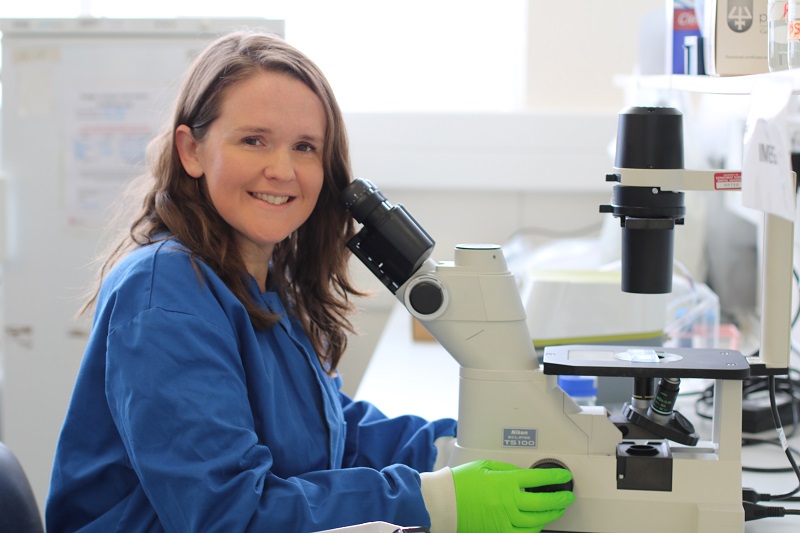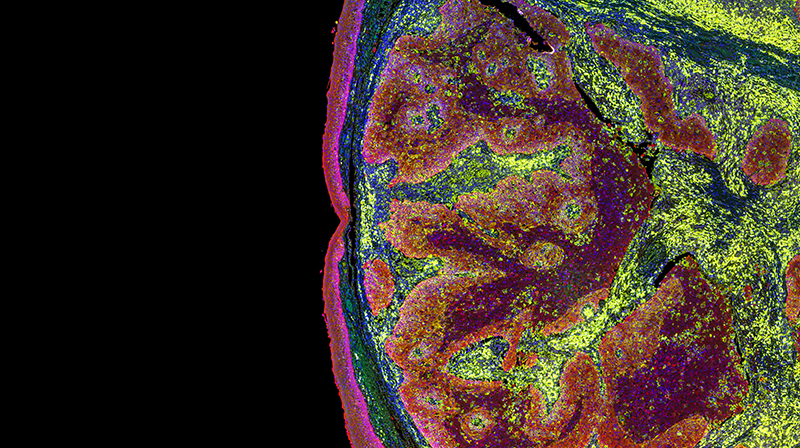
Learning from Alzheimer's disease to identify new treatments for prostate cancer

Grant information
Researcher: Dr Rachel Barker
Institution: University of Bristol
Grant award: £245,411
Reference: TLD-CAF22-009
What you need to know
- Dr Rachel Barker aims to identify new potential drug targets for prostate cancer treatment.
- She will study the role of certain proteins in Alzheimer's disease that are also found in prostate cancer cells.
- This could lead to the development of new drugs or repurposing of established Alzheimer's disease drugs for prostate cancer therapy, making treatments cheaper and quicker.
About Dr Barker
Dr Barker completed her PhD in Alzheimer’s disease research at the University of Bristol, followed by a number of years working as a postdoctoral researcher in the same field. After time away from research, she has lately been working as a research technician at the University of Bristol, developing her research ideas, authoring papers and building connections with colleagues in urology. This only fuelled her desire to pursue a career in research, leading her to apply for this Career Acceleration Fellowship.
As part of this project, Dr Barker will work with Professor Ingunn Holen, Professor of Bone Oncology at the University of Sheffield. This will give her further insights into how prostate cancer spreads beyond the prostate and into the bone.
The project should give Dr Barker the support, experience, training, and tools to enable her to become a confident and proficient independent researcher.
My research will investigate how a processing pathway that is important in Alzheimer’s disease might impact prostate cancer, potentially leading to repurposing established drugs or identification of new drug targets for prostate cancer treatment. The incredible support from Prostate Cancer UK will also allow me to learn new research skills, develop my career and build a network of collaborators to ensure maximum benefit from this project.
What will Dr Barker do?
Dr Barker wants to find new ways to treat prostate cancer by learning from Alzheimer's disease. She believes that some of the proteins that are important in Alzheimer's disease may also be important in prostate cancer. However, the function of these proteins in prostate cancer is not yet clear. Dr Barker plans to investigate how these proteins contribute to the development of prostate cancer and determine if they can be targeted to slow or stop the growth of cancer cells.
To achieve this goal, Dr Barker will use three different approaches. First, she will grow prostate cancer cells in the laboratory that mimic different stages of prostate cancer. By manipulating these cells and exposing them to various conditions that they may encounter in the body, she hopes to determine if the Alzheimer's disease-related proteins play a crucial role in prostate cancer development. She will assess various characteristics of the cancer cells that help them grow, survive, and move.
Secondly, Dr Barker will use genetic information to identify if any of these proteins are important for prostate cancer and may play a significant role in causing the disease. This technique will help her determine the potential targets for new treatments for prostate cancer.
Lastly, Dr Barker will analyse human prostate tumour samples to better understand where these proteins are found, and at what level, and determine if they are related to the characteristics of the tumour, such as size and grade. This will help her determine the relevance of these proteins in prostate cancer and potential for targeted treatments.
How will this benefit men?
By understanding how these proteins contribute to prostate cancer development and growth, Dr Barker hopes to identify new drug targets that can be used to treat the disease.
One important outcome of this research could be the repurposing of drugs already established for the treatment of Alzheimer's disease for prostate cancer therapy. This would make the development of new treatments cheaper and quicker, as the drugs have already been tested and approved for use in humans. Repurposing established drugs could also provide a more cost-effective treatment option for men with prostate cancer.
In the long term, the identification of new drug targets for prostate cancer could lead to the development of more effective therapies with fewer side effects, improving the quality of life for men with the disease. This could also lead to better outcomes and survival rates for those living with prostate cancer.
Help us fund more research like this
Your donation helps us fund lifesaving research into better treatments for prostate cancer.


